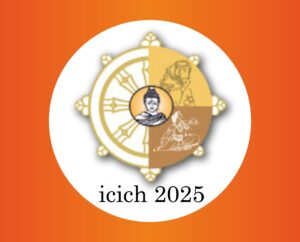About Conference
The history of Kalinga, a significant ancient region in Eastern India (modern day Odisha), is intricately tied to its maritime prowess and vibrant cultural exchanges. Known for its strategic coastal location along the Bay of Bengal, Kalinga served as a hub of maritime trade and cultural confluence, establishing enduring connections with Southeast Asia, Sri Lanka, Middle East and beyond. It is an important aspect of Asian history. As the culture of India consists of plurality of traditions, the part played by Kalinga was significant. Through its numerous ports on the long coastline, contact has flowed out in successive waves to different regions of Southeast Asia. The impact of Kalingan/Odishan culture is quite evident in the region. A region of ethnic, cultural, linguistic and physical mosaic, Southeast Asia consists of two broad groups in a geographical sense; mainland and island Southeast Asia.
This conference is an effort to elucidate factors responsible for development and adaptation of Kalingan culture in Southeast Asia, nature of interactions and its syncretism in the indigenous society and vice versa. It will also bring recent historical and archaeological researches to showcase the common cultural elements in both the regions. It will discuss the dynamics of regional and trans-regional trade that brought change to South East Asian societies during this period. Kalinga’s maritime history can be traced back to ancient times, with references in Indian scriptures, epics like the Mahabharata, and foreign accounts such as those of Megasthenes. The region’s prosperity was closely linked to its thriving ports, including Tamralipti, Manikpatna, and Chelitalo, which facilitated both coastal and transoceanic trade. The Kalinga Empire, under rulers like Kharavela, expanded its influence across the Indian Ocean, contributing to its reputation as a maritime power.
elucidate factors responsible for development and adaptation of Kalingan culture in Southeast Asia, nature of interactions and its syncretism in the indigenous society and vice versa. It will also bring recent historical and archaeological researches to showcase the common cultural elements in both the regions. It will discuss the dynamics of regional and trans-regional trade that brought change to South East Asian societies during this period. Kalinga’s maritime history can be traced back to ancient times, with references in Indian scriptures, epics like the Mahabharata, and foreign accounts such as those of Megasthenes. The region’s prosperity was closely linked to its thriving ports, including Tamralipti, Manikpatna, and Chelitalo, which facilitated both coastal and transoceanic trade. The Kalinga Empire, under rulers like Kharavela, expanded its influence across the Indian Ocean, contributing to its reputation as a maritime power.
Kalinga’s maritime endeavors facilitated cultural exchanges that were instrumental in shaping Southeast Asia’s religious and socio-cultural landscape. The concept of “Indianization,” or the spread of Indian cultural elements to Southeast Asia, owes much to Kalinga’s seafaring merchants, missionaries, and settlers. Kalinga played a crucial role in propagating Hinduism and Buddhism to Southeast Asia. Architectural styles in Southeast Asia, such as the temples of Angkor Wat in Cambodia and Borobudur in Java, exhibit influences from Kalinga’s temple designs. Kalinga’s influence extended to the linguistic domain, with Sanskrit and Pali being introduced to Southeast Asia. These languages enriched local scripts and literary traditions shared cultural practices, including festivals, dances, and rituals, highlight the enduring legacy of Kalinga’s cultural ties with Southeast Asia. The annual Boita Bandana festival in Odisha, which commemorates the maritime voyages of Kalinga’s sailors, symbolizes this historical connection. The economic dimension of Kalinga’s maritime activities cannot be overlooked. Its trade routes connected the Indian subcontinent with key ports in Southeast Asia, China, and the Middle East. These connections facilitated the exchange of goods, ideas, and technologies, enriching both Kalinga and its trading partners. Kalinga’s maritime activities were not limited to commerce; they also played a role in forging political alliances and diplomatic relationships.
Kalinga’s maritime activities and cultural relations with the outside world highlight its role as a pioneer of global connectivity in the ancient and medieval world. Through trade, religion, art, and diplomacy, Kalinga bridged civilizations and left an indelible mark on the cultural landscape of Southeast Asia and beyond. As we delve deeper into this rich history, Kalinga emerges not only as a symbol of India’s maritime heritage but also as a testament to the enduring power of cultural exchange in shaping human civilization.
Keeping these in view, Utkal University and Institute of Media Studies (IMS) in association with OLL&C Department are jointly organising the third edition of International Conference on Indian Cultural Heritage (ICICH) with the theme ‘Kalinga & Southeast Asia: The Civilisation Connect’ at Bhubaneswar in Odisha from 24 to 25 May, 2025.
About Us
The history of Kalinga, a significant ancient region in Eastern India (modern day Odisha), is intricately tied to its maritime prowess and vibrant cultural exchanges. Known for its strategic coastal location along the Bay of Bengal, Kalinga served as a hub of maritime trade and cultural confluence, establishing enduring connections…Read More
Revised Dates
- Deadline for Abstract Submission: March 25, 2025
- Acceptance Notification: March 31, 2025
- Registration Deadline: April 10, 2025
- Deadline for Full Paper Submission: April 25, 2025
Contact Us
- Conference Secretariat, Institute of Media Studies, OCHC Complex, Kharavel Nagar, Janpath, Unit-3, Bhubaneswar, – 751001, Odisha, India.
- incon2017@gmail.com / inconodisha@gmail.com
- +91-7077664372
- +91-9861977068












